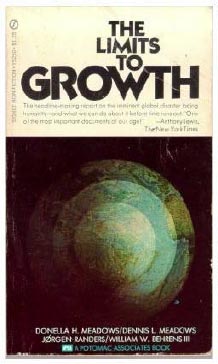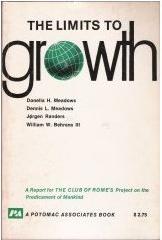It is a militant book "our purpose is to raise and influence human choice." Which supports the idea that unlimited and constant growth on our planet will end in the immediate future (21st century) with everyone's resources. “It is necessary to put a stop to this global dynamic.””. The dense, unliterary text (it is a report), repetitive and somewhat disjointed, comments on very varied topics related to; ; polluting materials in the Rhine, the ozone layer (CFCs, chlorofluorocarbonates, ultraviolet radiation (UVB rays), the disappearance of fish fishing grounds in Newfoundland or the intensive exploitation of the tree cover of the Amazon... among others.
The clearly neo-Malthusian writing develops projections based on statistics and changing variables, the “World 3” program, offering different models and situations that make us reflect. The book has the great virtue of creating a new vocabulary: Exponential growth, linear growth, system dynamics, positive and negative feedback cycle, physical goods, monetary goods, counterbalancing structures, eco-efficiency, sources and sinks of the planet, human burden, ecological footprint, biotechnological crops, interrelated dynamic systems, renewable sources and non-renewable, finite resources, equitable distribution, good practices, ecosystem services, resources and reserves, renewable energies, energy efficiency, ecosystem alteration, efficient technologies, generated flow, impact, generation of tensions, self-limiting and non-self-limiting conditions, overlimitation , collapse, cycles of erosion, bankruptcy of social order, steady state, global systemic analysis, carrying capacity, overreach and collapse... etc.
Bet on a new system of coexistence that ushers in a sustainable era, under a prism of solidarity, sanity and hope.
M.J. RUIZ DE AEL



